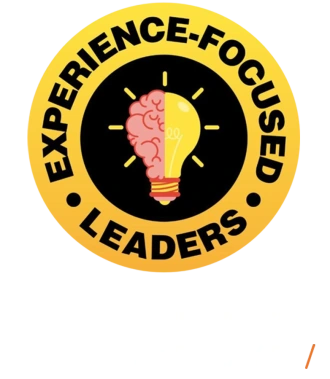His leadership focuses on composing a strategic symphony, orchestrating iterative work prioritization, and coaching leaders, managers, and teams on delivering outcomes over outputs.

View the Video Below
Listen to the Podcast Episode on Your Favorite Platform

.svg.png)


Agile Sales in the Enterprise
.png)
Are we iterative, are we adaptive, are we responsive? And that's over, by the way, being static and stock and reactive. So if you feel like you fit those last three, there's hope for you.
(00:00-11:43)
Anthony Coppedge, a leader in global digital sales at IBM, explains how the company is adapting to the changing environment by transforming to an agile business model. He emphasizes iteration, adaptation, and responsiveness, and introduces five values — Respect, Openness, Courage, Empathy, and Trust — and three principles — Clarity with Purpose, Experimentation, and Self-Direction — to help guide sales teams. Anthony also speaks to the role of managers, shifting from directing and controlling to supporting and providing.
.png)
The Importance of Agile Sales Leadership
.png)
An experimental mindset is to say, hey, what could we do to create, and deliver value? We call that an objective, and each objective then I should align to. If we do this, well, this goal probably going to be hit, and has a very high likelihood of being achieved.
(11:43-17:12)
The speakers discuss the importance of setting goals and objectives that align with the business and customer needs, as well as the importance of creating and delivering value that goes beyond just the financial investment. They also explore the risks of not changing to a more agile sales approach and how to make sure that clients are not only satisfied with the product but come back again and again for more.
.png)
Feedback-Driven Decision-Making With Agility
.png)
We reduce downsides to increase better upside, and we do that internally by making feedback actionable. So we solicit feedback at scale. You ask the people closest to the problem what's the problem. And what's interesting is they almost always always have an idea about what the solution is.
(17:12-22:09)
Anthony discusses how to make feedback actionable. He emphasizes the importance of aggregating and analyzing feedback at scale to gain actionable intelligence. He also highlights the importance of having a close relationship between marketing, product and sales teams and how they can use feedback to validate data and find solutions to problems. Finally, Anthony stresses the importance of listening to customers and being adaptable and responsive to their needs.
.png)

Agile Adaptation in Marketing and Sales
(22:09-27:46)
Anthony shares how IBM is adapting to new technologies, setting goals and objectives that are aligned with the business and customer needs, and creating and delivering value that is measurable over time. He also explains the importance of feedback and how to use it to make data-driven decisions. Finally, he shares his thoughts on the importance of digital body language and how it can be used to create a more engaging customer experience. Organizations can become more agile to keep up with the changing environment by utilizing these strategies.
.png)
Creating a Customer-Centric Experience
.png)
The value comes when people begin to think differently. I actually don't try to change behaviors at IBM. I try to change minds, because if I change your behavior, the only way I can force that is compliance. Well, that's anti-agile...
(27:46-31:21)
Anthony shares his two-by-two model, a litmus test to help keep the business on track. The speakers explore how to create a customer-centric experience to enable customers to self-qualify or self-disqualify for a product or service. They discuss how to use feedback to realize better upside in the business and how to adapt to new technologies to stay competitive.
.png)
Changing Minds to Drive Behavioral Change
(31:21-35:42)
The speakers explore the importance of transitioning to a non-formal leader and how to invite people to join the process. Anthony shares how to shift mindsets to ensure behaviors follow and his two-by-two model to help keep the business on track. They also discuss how to create a customer-centric experience to enable innovation and how to make feedback actionable to achieve better results in the business.
.png)
.png)
Agile Sales and Marketing Processes
.png)
I find PLG is only as effective as your communication, coordination and collaboration between marketing and sales.
(35:42-49:00)
Anthony brings up the idea of anti-fragility and how it applies to people, trees, and wine glasses. He highlights the importance of creating a customer-centric experience and transitioning to a non-formal leader to invite people to join the process. The speakers explore how the right environmental conditions can help us to develop better habits and intrinsic rewards that can strengthen our work.
.png)
Value of PLG in Sales+Marketing
(49:00-50:09)
Anthony shares how to create a customer-centric experience and how to shift mindsets to become a non-formal leader.
.png)
Check the the episode's Transcript (AI-generated) HERE.
Other Episodes

Godard Abel | CEO of G2
S 01 | Ep 6 Where You Go for Software: Reach Your Peak


Dean Stocker | CEO of Alteryx
S 01 | Ep 8 Turning Your Customers Into Your Biggest Champions


Peter Fader | Co-Founder of ThetaCLV
S 01 | Ep 10 Turning Your Marketing Into Dollars

Author

Experience-focused Leaders is the #1 Multimedia Podcast! We talk to senior business & tech leaders about the experiences that move forward organizations, customers and society at large. True to form, we mix audio, video, web and eBook formats to turn these authentic conversations into personalized nuggets you'll remember & use.



.png)
